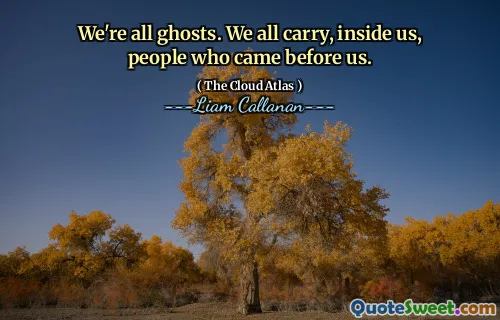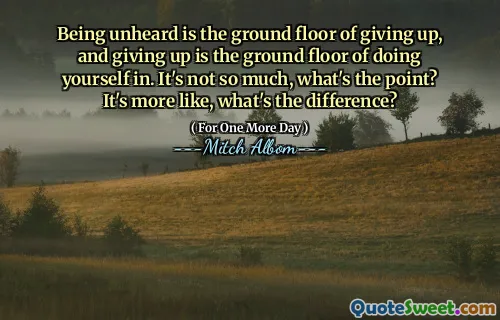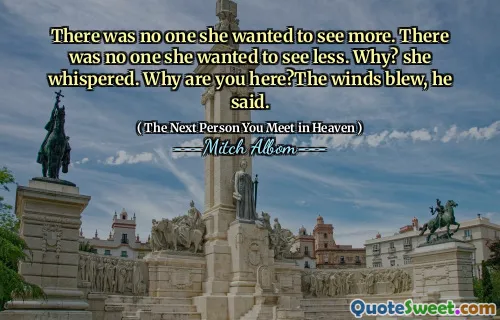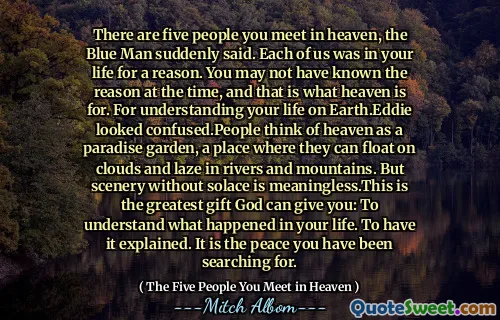
Because in the end, we die. It's like Chekhov observed in so many of his plays: 'in two hundred years, no one will even know we were here.'
This quote reflects a profound and somewhat sobering perspective on the impermanence of human existence. The inevitability of death serves as a common denominator that levels all individuals, regardless of status, accomplishments, or the noise of their contemporary lives. The reference to Chekhov's observation deepens the reflection by connecting the individual experience to cultural and historical dimensions. Chekhov, a master of exploring the human condition, suggests that human endeavors, no matter how intense or meaningful they seem today, often vanish into obscurity as time marches on. This can invoke feelings of existential humility but also freedom. Recognizing our transient impact on the world might inspire us to live more authentically and prioritize what truly matters to us rather than chasing perpetual remembrance or lasting legacies. It also encourages mindfulness of the present—cherishing relationships, experiences, and moments that define our fleeting lives rather than fixating solely on permanence or recognition. While some may find this perspective nihilistic, it can be viewed as a call to embrace the brevity of life with courage and intentionality. It humbles the ego and offers a canvas of opportunity, telling us that meaning is not necessarily found in lasting fame or memory but in the essence of how we live our days. Within this thought, there lies a subtle yet potent affirmation of life: since we are here briefly, we might as well be fully present and compassionate in our time.






